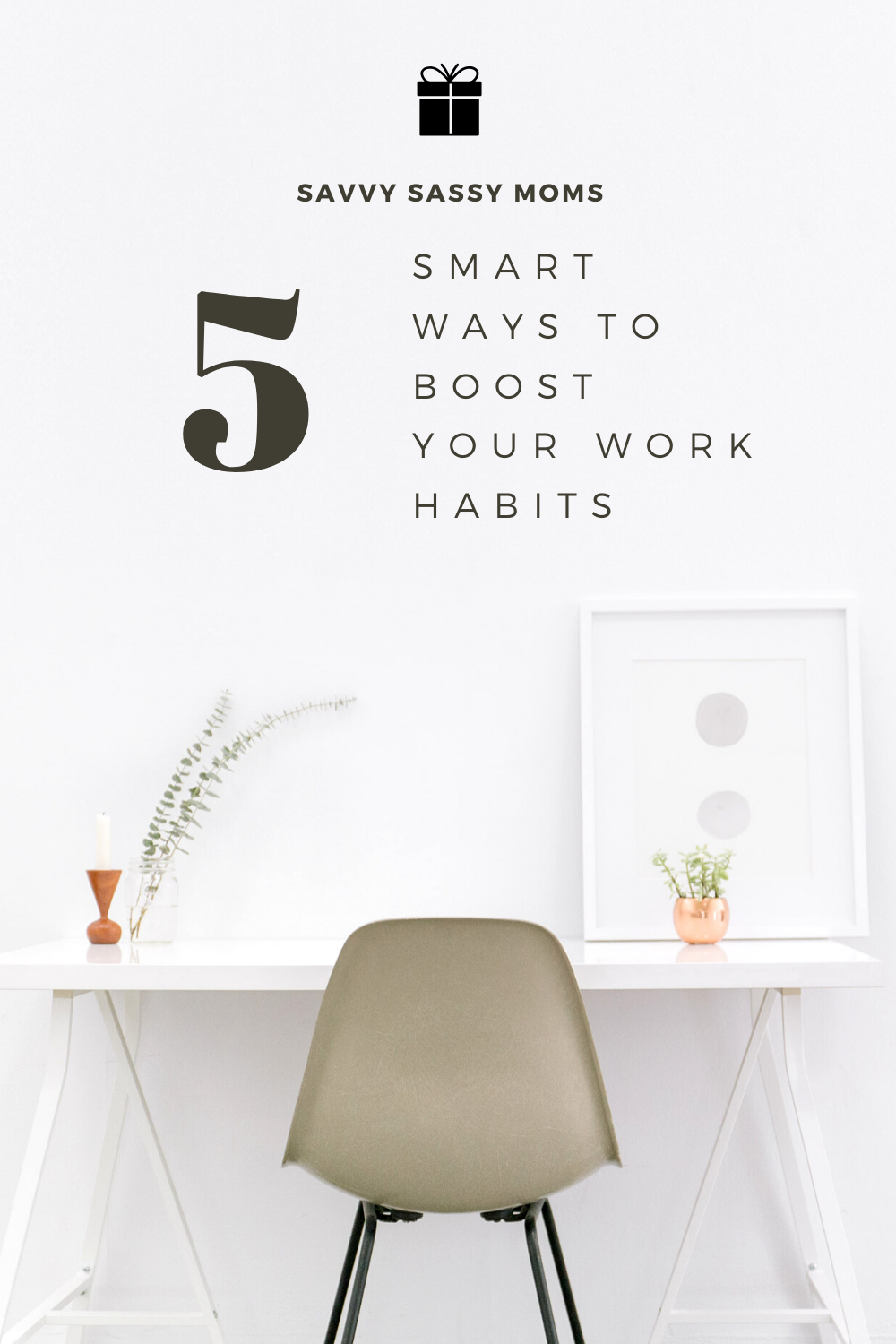Learning any new skill or information can be daunting. Whether you or your child is studying for school, you’re mastering a technical skill for work, or dedicating yourself to a new hobby, the key to good learning is organizing your work habits. While we are in our homes more now than ever, many of us are taking up new hobbies, or want to. Whether is it work or pleasure, setting good habits to get the task done is a good thing to learn and an even better thing to model for your children.
When you look at everything you have to learn in one go, it feels like an enormous undertaking and your confidence can take a hit. For example, if you are thinking about writing a book, looking at the book as a whole can be very overwhelming! But if you break the task down into manageable chunks, get into a routine, and find the right resources, you’ll be making progress in no time.
So if you’re looking for some smart ways to boost your work habits, check out the list below for ideas.

Set A Realistic Schedule
You want to push yourself and work everyday. But it’s important to be realistic about what you will be able to achieve in any given work session. If you set yourself achievable goals, that you know you can hit, you will feel a sense of achievement that keeps you motivated.
So before you start, set yourself a realistic schedule. How many hours per day will you really be able to work? What time of day are you at your best? What are some achievable goals for the week? And how will you reward yourself once you’ve hit your targets? Keep in mind all of the other things that need to get done in a day, especially if you are at home with the kids!
Establish A Routine
Once you have your schedule, you want to establish your studying routine. No ifs, no buts, you work at the same time every day, in the same spot, and you clock off at the time you set yourself.
Over time, just like brushing your teeth or taking the dog for a walk, your work habits will become a routine, and it’ll feel weird not to do it. The early stages of this are really key. Avoid random sessions when you “feel like it”, and stick to your routine until it settles in.
Establishing a routine is also easier if you have something to do. This could be as simple as regular house cleaning (someone has to do it, after all). Alternatively, you can give yourself a purpose and learn something new. Perhaps this is a new hobby learned through YouTube tutorials or beginning your steps towards a new career with NavaED. With a purpose, you can wake up every day knowing you have something to do, which will help kickstart your routine. It will help you allot time to specific demands and help make those days fly by as you’re managing to keep busy.

Image Source: Pixabay CC0 Licence
eLearning Resources
There has never been a better time to start a new subject, or learn from home. With hundreds of eLearning platforms growing and improving everyday, you can get the support and guidance you need online, with easy-to-follow instructions and routines built in.
It can be tough to work out which eLearning platform will be right for you. There are lots of specialist sites for specific courses. But there are plenty of reviews like these iSpring Learn Reviews available to give you the lowdown on each platform, and lead you in the right direction.
A Place To Work
It can be tempting to sit on your bed, or settle in the living room when you work, because you feel more relaxed. But is this really the best place to work?
Generally speaking, it’s best to find a quiet spot, either at home behind a desk, at school or in the library, where you can work everyday undisturbed. This helps to separate study time from relaxing time, and keep you focussed on the task.
Where possible, avoid eating, watching TV or playing games in your work area. Keep it special, so when you sit down to work you associate this area with being productive.
Take Proper Breaks
Cramming might work for some people, but most of us learn far more effectively in short bursts, with proper breaks in between. You need time to process what you’re taking in, and to recharge away from your books and computer screen.
Take at a short break every 45-60 minutes, and longer breaks for lunch, exercise, and afternoon refreshments. You’ll come back more focussed and ready to work!








